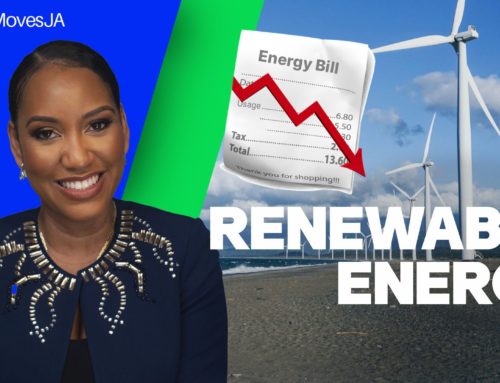Cannabis was illegal in Jamaica until 2015. The Cannabis Licensing Authority set up by the Government was tasked with the specific role to establish and regulate Jamaica’s legal ganja and hemp industry. Still many are unclear, how to start a cannabis plant and how to efficiently operate. Joining me now to discuss we have Director of Licensing and Applications at Cannabis Licensing Authority, O’Shane Williams.
The upfront cost to start a legal cannabis farm in Jamaica can cost farmers well over J$1 million, but there is a possibility to make much more than that on the global cannabis market.
Cannabis, known more popularly in Jamaica as weed or ganja, is still classified as a dangerous drug under Jamaican law, however, over the years specific uses of the drug have been decriminalised.
This coupled with increasing scientific research around the cannabis plant’s medicinal properties has led to a boom in the global demand for weed. According to Forbes Magazine, the global cannabis market raked in US$29 billion in 2021.
Speaking on MoneyMovesJa with Kalilah Reynolds, Director of Licencing and Application at the Cannabis Licensing Authority (CLA), Oshane Williams explained that there are currently five types of cannabis licences that Jamaicans can apply for.
These are;
- Cultivator Licence
- Processing Licence,
- Retailer Herb House/Retail herb house without facilities for consumption/Retail Therapeutic Licence
- Research and Development Licence
- Transportation Licence
Williams said that, to date, the interest had been mostly for a cultivator licence.
He explained that this licence is separated into three different tiers based on land size. A tier 1 license is granted to farmers who intend to grow ganja on less than one acre of land, while tier 2 is for one to five acres and tier 3 is for more than five acres.
He said that land is one of the most important factors when applying for a cultivator licence at the CLA.
“You need to have your land ready, it can be leased. So, you can be the titled owner or it can also be unregistered, as long as you can identify the owner and that owner gives you consent to use it,” he said.
Williams also said that the agency will have to see plans for the built infrastructure that would support the cannabis farm. He said that this refers to fencing, buildings, surveillance and access control.
“Security basically because you are dealing with a dangerous drug, that is how it is classified,” he said.
He explained that for a tier 1 licence, which is less than one acre, farmers will need perimeter fencing, up to six feet seven inches tall. He said that within that area there must also be defined sections for growing, drying, storing etc.
In addition to fencing, there must be surveillance to show people moving between these areas as well as access control which can be in the form of biometric readers or a log book.
The fee to apply for a tier one licence with the CLA is US$2,000 per acre, tier 2 is US$2,500 up to five acres then it cost US$3,000 for every acre over five.
Williams said that depending on the route that a tier 1 farmer chooses to go in regards to the type of surveillance and access control methods used, starting a cannabis farm can cost between J$1-1.5 million.
The Director said that there are checks and balances in place to ensure that people do not abuse the system. He said that while Jamaica’s laws do not currently issue a fine for persons found to be breaching CLA rules, the individual runs the risk of having their license suspended or revoked.
This would then place them in conflict with security forces as the cultivation and sale of large quantities of cannabis is still illegal in Jamaica.
Visit EXIM Bank’s Business Advisory Service at:
https://eximbankja.com
AUDIO ONLY
Recommended for you


















